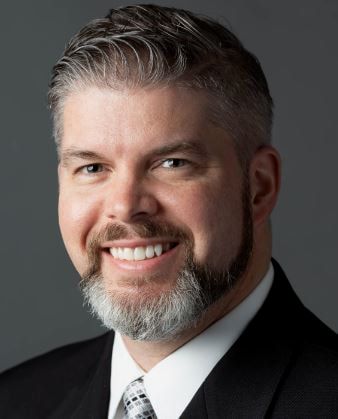|
America is in the grip of the deadliest viral outbreak in a century and it is happening in an election year during the most divisive political eras since the Civil War. It’s a perfect storm.
Swirling in this political maelstrom is the hot wind of social media debates over masks, social distancing, opening up the economy, individual rights and public health. There are a few people blowing hard in one or the other direction. But most of us are standing in the eye of the storm feeling pulled in all directions. It seems like we are being force to make a choice between being safe from a potentially deadly virus or protecting our economic well-being and our right to not have the government dictate our private lives. It seems sometimes like we are being ask to choose between life or liberty itself. In the last few months, the government, in the name of protecting lives from the COVID-19 virus, has implemented extraordinary restraints on many of our fundamental liberties. These include the Free Exercise Clause of the First Amendment, the First Amendment Right to Assembly ; the right to interstate travel under the Commerce Clause; Privacy rights under the 4th Amendment, and for those lingering in prisons and jails, the right to a speedy trial under the 6th Amendment. Are all these violations of our liberties even legal under the U.S. Constitution? Yes actually. But only for a limited manner and a limited time. During public health emergencies, state and local governments have the authority to enact measures to protect the welfare, health, and safety of their citizens. While in normal times these would be condemned as an infringement of our constitutionally protected rights, it is within the authority of the states' police powers under the 10th Amendment for the government to take extraordinary actions in extraordinary times. This clause in the 10th Amendment gives government in times of crisis the power to abridge certain individual rights we would normally expect to be unbreakable. Specific to our times, the police powers under the 10th Amendment gives states the authority to force isolation for public health purposes. As recent as May 30, 2020, the U.S. Supreme Court has affirmed that states do have the power to force isolation on citizens for their health and safety. Chief Justice John Roberts in his concurring opinion recognized the uniqueness of our "extraordinary health emergency" that is “fraught with medical and scientific uncertainties” as well as the highly contagious nature of the virus, stating that leeway should be given to states power to protect health and safety. But government's police power under the 10th Amendment is not a blank check. The government's restrictions on our liberties must pass the legal test we call "strict-scrutiny" analysis. Government restrictions when challenged in court, must pass the test of being both "a compelling government interest” and also being the “least restrictive means” of achieving the government's legitimate purpose in protecting the public. And who will be the ones putting the government's restrictions on our liberties to this strict-scrutiny test? It will be your friendly neighborhood lawyer. Lawyers have a job - it is called vigilance. Thurgood Marshall once said, “grave threats to liberty often come in times of urgency.” This has never been more true than today. Recent history confirms Marshall's axiom that when government is given authority to curtail our rights during times of crisis, it is very hard to get it back from the government when the crisis has ended. One example is the huge expansion of government surveillance of the public after 9/11. Prior to 2001 the government would not be tolerated to do the level of spying on U.S. citizens it was granted under the so called Patriot Act - a law which was passed by Congress on a promise that the spying would only be temporary. Yet 19 years after the terrorist attacks, that surveillance program continues to this day. General John Stark's famous statement of fierce dedication to liberty, which became the motto for the State of New Hampshire, is "Live Free or Die". But it is doubtful that he meant that to be taken as literally as some do today. Even during a global pandemic, we do not have to make such a drastic choice - nor should we allow anyone to make us think we do. The preamble to the U.S. Constitution reminds us that it is our God-given right to have BOTH life and liberty (and the pursuit of happiness). For life and liberty to both flourish, there must be a delicate balance struck between the necessary restrictions on certain actions during security, health and safety emergencies, and the full exercise of personal liberties we should expect as the norm in all other times. As advocates for citizens who seek to limit government authority, lawyers have a responsibility to be sure the government doesn't abuse or upset that delicate power balance. Attorneys - often maligned and put down by the public, are actually the guardians of citizen power against an overreaching government that would take that power away. As we try to navigate the rapidly changing environment of the pandemic, where new technologies and treatments will constantly shift the need to restrict liberties we once enjoyed, it is up to lawyers and policy makers and the citizens they serve, to ensure that measures designed to protect us don't permanently reduce our fundamental rights. If we do not stay vigilant, we may forever lose our liberty. And if that is allowed to happen, then we would compound the tragedy of this pandemic with the travesty of oppression. Instead, lets make clear headed decisions based on the best available information. Let's put aside our selfish desires and fears and think equally about what is good for neighbors and our nation both today and in the future. We don't have to make a choice to "Live Free or Die". Let's survive today, but let's also preserve our freedoms for tomorrow.
0 Comments
Leave a Reply. |
Need more information about this or other family law topics in Texas?
Click the button below to book a FREE ATTORNEY CONSULTATION (832) 819-3529
Attorney Sean Y. Palmer has over 20 years of legal experience as a Texas Attorney and over 25 years as a Qualified Mediator in civil, family and CPS cases. Palmer practices exclusively in the area Family Law and handles Divorce, Child Custody, Child Support, Adoptions, and other Family Law Litigation cases. He represents clients throughout the greater Houston Galveston area, including: Clear Lake, NASA, Webster, Friendswood, Seabrook, League City, Galveston, Texas City, Dickinson, La Porte, La Marque, Clear Lake Shores, Bacliff, Kemah, Pasadena, Baytown, Deer Park, Harris County, and Galveston County, Texas.
Call (832) 819-3529 If you live in the Houston area and would like to consult with one of our attorneys, please leave your information below.Archives
July 2024
Categories
All
|
The Palmer Law Firmwww.thepalmerlawfirm.com
(c) 2024 Sean Y. Palmer |
DISCLAIMER:
This website is for educational and informational purposes only and is not, nor is it intended to be, legal advice. Viewing of this website does not create an attorney-client relationship. All legal matters should be discussed with a licensed attorney before you take any action. You should consult with an attorney for advice for your individual situation. Sean Y. Palmer is the attorney responsible for the content of this site. DATA NOTIFICATION: Pursuant to the Health Insurance Portability and Accountability Act, and the Texas Medical Records Privacy Act of the Texas Health and Safety Code, consumers are noticed that their protected healthcare information may be transmitted electronically. |


 RSS Feed
RSS Feed